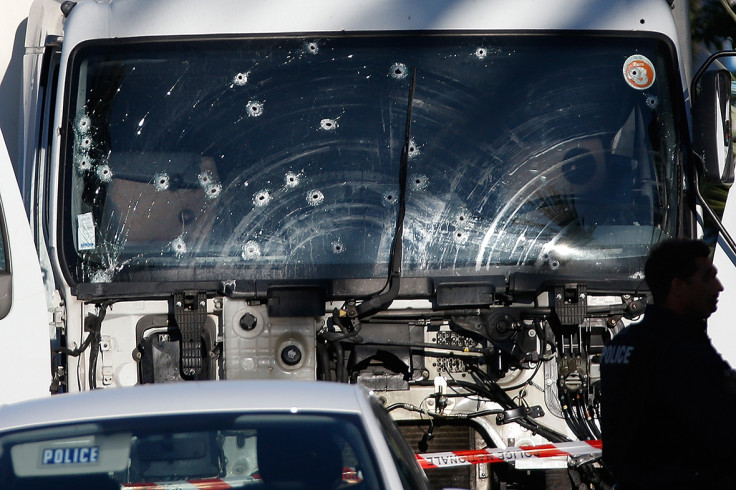Nice attack: Government terror alert app slammed after warnings came 'two hours late'
Friends and family of potential victims turned to Facebook and Twitter during attack
A smartphone application designed by the French government to send real-time alerts to users during times of crisis has been criticised for activating roughly two hours late during the Nice tragedy on 14 June.
The emergency system, called Saip (Système d'alerte et d'information des populations), was developed following the November terror attacks in Paris and was rolled out just prior to the Euro 2016 football tournament, which opened this year amid a high police presence.
However, despite being designed as a rapid response system to alert users to nearby danger, the application was reportedly hours late warning users after a lorry was driven into a crowd of bystanders during Bastille Day celebrations in the French city.
With first reports of the incident emerging at around 11pm, users on social media slammed the Saip application for not sending any alerts until two hours after the attack. Timestamps on a number of tweets alongside screenshotted images back up the claims.
One user wrote: "Alert on #SAIP that fires two hours after the tragedy... What is the usefulness of the application?" With clear sarcasm, another said: "The application launched by the #SAIP @gouvernementFR is obviously very effective tonight."

The app, which is available in both English and French, is supposed to send out alerts if an attack occurs near a user – relying on the geo-location capabilities of smartphones. In the event of an emergency, the screen turns red and displays the word 'alert' in capital letters.
Users can then click on the message to see more information about the ongoing operation and receive real-time advice on how to react – including 'take cover' and 'do not overcrowd phone networks'.
Alerte #attentat sur #SAIP qui se déclenche 2 heures après le drame... Quel est l'utilité de l'application ?? #Nice pic.twitter.com/NU7E7oMjuo
— Olivier Jaillet (@OJaillet) July 15, 2016
Unlike the Saip application, social media platform Facebook turned on its Safety Check feature at the time of the event. This application allows users to 'check in' to the widely-used social platform to alert friends and family they are safe. It is the third time the feature has been used in two months, being activated following recent incidents in Orlando, Florida and Istanbul's Ataturk Airport.
In desperation, users have also turned to Twitter hashtags in an attempt to locate missing friends and relatives. Two main hashtags of #RechercheNice (#SearchNice) and #NiceFindPeople have been posting descriptions and images of loved ones. Specific profiles for this purpose have also been created, including @NiceFindPeople.
Meanwhile, many users took to the internet to show solidarity with victims of the attack using the #JeSuisNice hashtag to indicate support.
Following the attack. French president Francois Hollande said during a televised address: "France has been struck on the day of her national holiday...the symbol of liberty. We show our solidarity towards the victims and their families. All means are being deployed to help the wounded."
In the UK, a Downing Street spokesperson said Prime Minister Theresa May is "being kept updated" on emerging reports. "The Foreign and Commonwealth Office are in touch with the local authorities to seek more information and we stand ready to help any British nationals and to support our French partners," the statement continued.
You can follow IBTimes UK's ongoing coverage of the Nice attack.
© Copyright IBTimes 2025. All rights reserved.






















